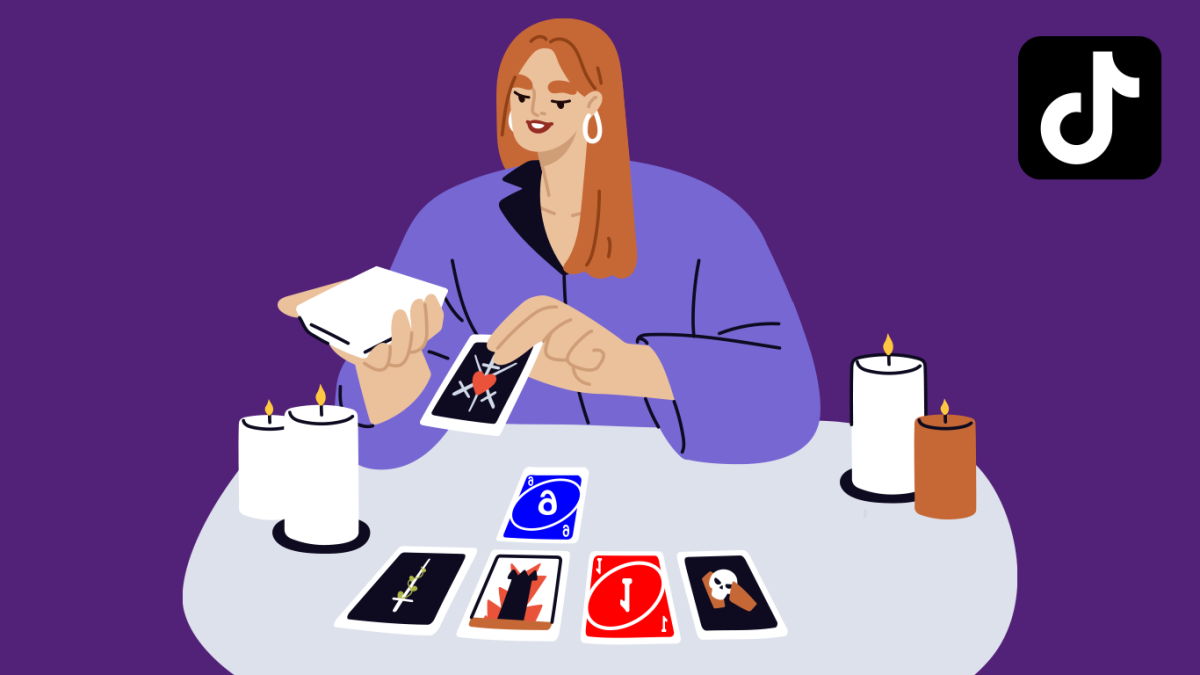While scrolling on TikTok, I saw a video of a woman complaining about a tarot card reader she saw on her feed. The tarot reader alleged that her divine messages were directly meant for anyone who happened to stumble across them. Being that the woman was watching the video, she felt it was a sign.
She then explained how the TikTok oracle prophesized a reconciliation with an ex-partner and that lots of abundance would flow into her life. Of course, none of that occurred, and the woman felt disappoinnted.
My first thought was, “No way she believed a TikTok tarot reader,” and after reading the comments, I saw she wasn’t the only victim. It’s unfortunate that so many people can be bamboozled like that, but I think people pretending to be legitimate diviners is an even crazier problem.
On top of that, I’ve noticed a pattern among the new wave of fake social media future readers. They all have the same traits, but the TikTok charlatans are the worst.
I don’t have an issue with spirituality. In fact, I think it’s great that people are choosing to connect with God or a divine entity on their own terms. There’s a sense of independence that’s unlocked when choosing that route, and I’m sure it’s freeing.
However, just like in religion, there are flaws in new-age spirituality. Exhibit A would be the TikTok tarot readers. I won’t say that all diviners who choose to promote their work on social media are tricksters, but I do think that many of them are clout chasers.
If you watch any of the general readings these self-proclaimed tarot readers post, you’ll notice that they’re very vague, so much so that anyone could relate to them.
They say things like, “If you’re Scorpio, Pisces, Gemini, Aries or Capricorn, this message is for you” and “If you don’t like your ex, this message is for you.” Be so serious.
I consider these types of readers to be a part of new-age spirituality. New-age spiritualists tend to value toxic positivity, appropriate Asian and African religious customs and preach about using manifestation to attract money without acknowledging generational wealth or other socioeconomic factors.
They deliberately mislead people who are seeking guidance of some sort, all to boost engagement with their profiles and gain fame. To them, the art of divination isn’t a serious practice, but rather a source of entertainment at the expense of the impressionable.
I suppose that’s also why they love using TikTok as their platform of choice. So many users are young, and spirituality is a growing movement amongst Generation Z. For a fake tarot reader, TikTok probably looks like a gold mine.
Algorithms are real. Clout chasers are real, and actual diviners wouldn’t beg you to accept their messages. I can’t say that TikTok should ban these kinds of readers. At the end of the day, they’re also content creators and have to find a way to make ends meet.
However, I can say that it’s fine to ride the wave of these so-called diviners for enjoyment, just don’t drown in their lies.
Amyri Jones is a 22-year-old digital advertising and religious studies senior from Baton Rouge.








